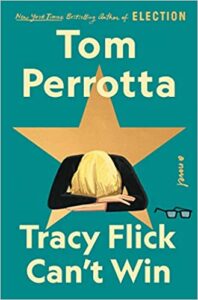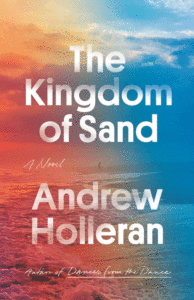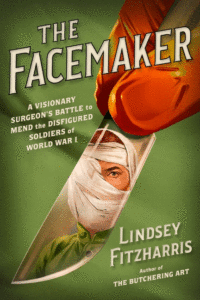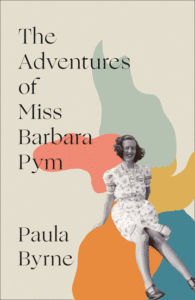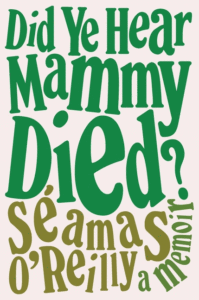
What Should You Read Next? Here Are the Best Reviewed Books of the Week
Featuring New Titles by Tom Perrotta, Andrew Holleran, Leila Mottley, Lindsey Fitzharris, and More
Leila Mottley’s Nightcrawling, Tom Perrotta’s Tracy Flick Can’t Win, Andrew Holleran’s Kingdom of Sand, and Lindsey Fitzharris’ The Facemaker all feature among the Best Reviewed Books of the Week.
Brought to you by Book Marks, Lit Hub’s “Rotten Tomatoes for books.”
*
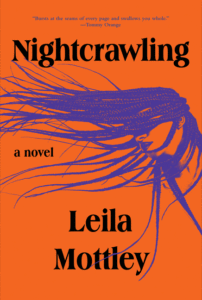
1. Nightcrawling by Leila Mottley
(Knopf)
7 Rave • 5 Positive • 1 Mixed
“Fierce, lyrical … Through Mottley’s deft maneuvering of a resolute mind in free fall, we watch, powerless, as a steady trickle of decisions usher Kiara into darkened city streets … The story’s skeleton (the ache in its bones, the truth in its spine) is drawn from recent history … Light reading, it is not; essential to understanding how maddeningly elusive justice can be, absolutely … As a writer, Mottley channels the natural prose of everyday life, the way people and cities breathe and spit and shiver. It is unflinching writing, the kind that soothes even as it strikes; the darkest, most denigrating passages are reliably followed by the light.”
–Cassandra Landry (The San Francisco Chronicle)
2. Tracy Flick Can’t Win by Tom Perrotta
(Scribner)
6 Rave • 3 Positive • 3 Mixed
“… even more piercing than its predecessor … The cast includes a former athlete, a rich tech guy, a long-suffering admin, two students and the school principal. All are exquisitely drawn … Few novelists are better than Perrotta at conveying the full spectrum of human delusion … Perrotta veers off in an ingenious third direction. Life suddenly, and startlingly, comes to match the intensity of Tracy’s vision of it.”
–Molly Young (The New York Times)
3. The Kingdom of Sand by Andrew Holleran
(Farrar, Straus and Giroux)
7 Rave • 1 Positive • 2 Mixed
Read an excerpt from The Kingdom of Sand here
“… feel[s] like a summation of Holleran’s work, circling tighter than ever around matters of desire and mortality … The tension in the two men’s ‘shared loneliness together’ has little to do with plot—it’s clear from the start that everybody is headed in one direction, underground. Rather, the suspense is over how—and whether—the narrator is going to confront his and Earl’s mortality … isn’t persistently mordant, but its humor is inevitably of the black-comic sort … It’s rare to find fiction that takes this kind of dying of the light as its subject and doesn’t make its heroes feel either pathetic or polished with a gleam of false dignity … Aging, frailty and death are universal themes. But Holleran also understands them as particular to a culture trained on (as the title of his 1995 novel put it) the beauty of men … This sad, beautiful book captures the sensations Holleran’s characters are chasing—as well as the darkness that inevitably comes for them, and us.”
–Mark Athitakis (The Los Angeles Times)
**
1. The Facemaker: A Visionary Surgeon’s Battle to Mend the Disfigured Soldiers of World War I by Lindsey Fitzharris
(Farrar, Straus and Giroux)
8 Rave • 3 Positive • 1 Mixed
“A fascinating medical history … As Fitzharris works her way through various types of trauma…she chronicles the rise of the various medical arts brought to bear in treating them. She threads into such discussions cultural commentary and a social history of ableist notions of beauty and health … Fitzharris successfully balances the story of plastic surgery’s growth with a compassionate attention to those whose wounds made it possible. Photos that document the ‘before and after’ faces of patients are chosen with due care.”
–Lorraine Berry (The Los Angeles Times)
2. The Adventures of Miss Barbara Pym by Paula Byrne
(William Collins)
7 Rave • 4 Positive • 2 Mixed
“Like many of Pym’s novels, Paula Byrne’s superb new biography of the author illustrates the limitations, challenges and opportunities faced by educated single women in the 20th century … The Pym who comes to life in this engaging and ultimately moving book is a woman who was sometimes brave and sometimes morally blind, a romantic who had a sense of the absurdity of romance but for whom dreams could overcome common sense, a woman who faced the challenges of growing older as a single woman with courage, a woman with the gift of keeping lifelong friends. ‘Incidentally, people may be very untame inwardly—one can seldom know,’ Pym wrote in her diary in 1933. As this exemplary biography shows, that was definitely true of Miss Barbara Pym.”
–Anna Carey (The Irish Times)
3. Did Ye Hear Mammy Died? by Séamus O’Reilly
(Little Brown)
8 Rave
Read an essay by Séamus O’Reilly here
“This is an irrepressibly funny and poignant memoir of family life after bereavement … O’Reilly brings to life the warmly raucous meals around the vast kitchen table, the dormitory chatter (teenagers on top bunks talking football, fights and discos; earnest discussion of dinosaur subspecies between the younger boys below), and being ferried to Mass in the family minibus (a 26-foot caravan, sensibly pre-blessed by a priest, was attached for longer trips) … a cast of so many siblings poses narrative difficulties … As a result, Sinead-Dara-Shane-Orla-Maeve-Mairead-Dearbhaile-Caoimhe-Fionnuala-Conall (always in age order) are left necessarily indistinct. It is his stoical father Joe, with his reverence for dogs, priests and esoteric tools, who comes into loving focus, adored and teased in equal measure. There are also superb pen portraits of peripheral relations, including stern-faced Granny O’Reilly … A large family proves both a profound comfort and an essential distraction, but grief, inevitably, surfaces in its own time. These ‘controlled explosions’, harrowing and cathartic, are tenderly drawn, and mirror the background struggles of a community processing decades of trauma.”
–Marry Morris (Times Literary Supplement)
Book Marks
Visit Book Marks, Lit Hub's home for book reviews, at https://bookmarks.reviews/ or on social media at @bookmarksreads.










